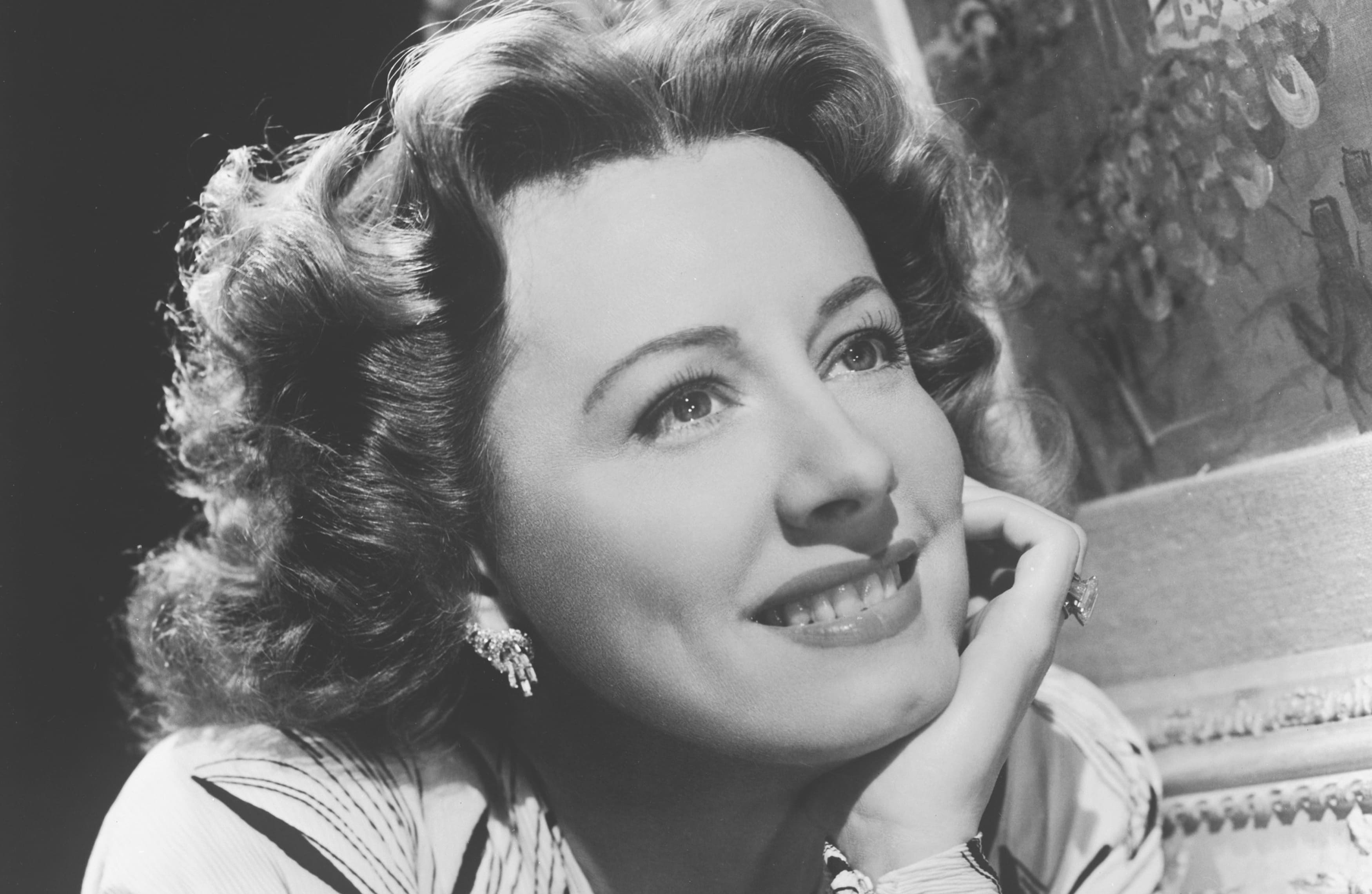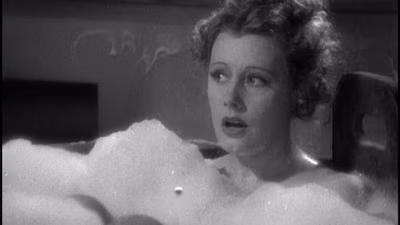Irene Dunne

About
Biography
Filmography
Family & Companions
Biography
Affectionately nicknamed "The Iron Maiden," lovely Irene Dunne hoped to have a career in opera, but her singing skills ultimately led instead to Broadway and movie stardom. On the basis of her early film credits, which were dominated by such dramas as "The Age of Innocence" (1934) and "Magnificent Obsession" (1935) and musicals like "Show Boat" (1936), Dunne surprised some critics and audience members with her considerable comedic flair on view in such highly regarded pictures as "Theodora Goes Wild" (1936) and "The Awful Truth" (1937). She also continued to excel in dramatic parts, with her portrayals in "Penny Serenade" (1941) and "I Remember Mama" (1948) being of particular note. In spite of often excellent performances, Dunne never won an Academy Award and that led in later years for her to be called the finest American actress to have never received that honor. Regardless, Dunne was highly respected by her peers and her decision to retire comparatively early was viewed as a way to exit the business on a high note, while she still had some say in the roles being offered. Dunne's talent in the areas of drama, comedy, song and dance made her one of the most multi-facetted performers of the 1930s and '40s and the consistent quality of that work made her much beloved among fans of classic Hollywood cinema.She was born Irene Marie Dunn (the "e" was added later) on Dec. 10, 1898 in Louisville, KY, but spent much of her teenage years in Madison, IN. From an early age, Dunne displayed an aptitude for singing and her skills were further developed through vocal training. Dunne also learned to play piano via instruction from her mother, a professional musician, and had formative performing experiences in school plays and as a member of the local church choir. Following Dunne's graduation from Madison High School, she attended the Indianapolis Conservatory of Music and Chicago Music College, hoping to utilize her gifts in the world of opera. While that did not pan out, Dunne's vocal talent opened other doors and she received opportunities to shine as a professional singer. Dunne took her first bow on Broadway in the title role of "Irene" (1919-21), replacing original star Edith Day during the hit play's two year engagement. A similar experience followed on "The Clinging Vine" (1922-23). As the understudy for star Peggy Wood, Dunne was given her shot when Wood lost her voice to laryngitis. Additional employment came as a cast member in the traveling company of "Show Boat" and return engagements on Broadway, though "Yours Truly" (1927), "She's My Baby" (1928) and "Luckee Girl" (1928) had far more modest runs than Dunne's previous Great White Way credits.On the personal front, Dunne wed dentist Francis Griffin. The couple would go on to adopt a daughter and their union lasted until Griffin's death almost four decades later. Meanwhile, Dunne's talent and magnetism inevitably attracted the attention of Hollywood and she was signed to a contract by RKO Radio Pictures. In contrast to the usual trajectory for newcomers, Dunne vaulted right into lead roles with the film adaptation of the musical-comedy "Leathernecking" (1930). The studio thought highly enough of Dunne to next cast her opposite Richard Dix in their large scale western "Cimarron" (1931). Playing a character that provides support to her family but possesses her own share of shortcomings, Dunne received a Best Actress Academy Award nomination and the movie became the first Western to win Best Picture honors. Despite this distinction and enthusiastic reviews, the production was a commercial disappointment in relation to its immense cost. Dunne continued to toil for RKO in potboilers like "Back Street" (1932) and "Thirteen Women" (1932), but soon found an excellent vehicle for her talents in the company's adaptation of Edith Wharton's "The Age of Innocence" (1934). Loaned out to Universal, she enjoyed a further strong dramatic vehicle in the form of "Magnificent Obsession" (1935), but Hollywood was also wise enough to start taking advantage of Dunne's other talents. This began on "Roberta" (1935), which found Dunne sharing the screen with Fred Astaire and Ginger Rogers, and performing two songs, including the highly popular "Smoke Gets in Your Eyes." Impressed with her talents, Universal brought her back for their cinematic incarnation of "Show Boat" (1936). As the memorably named heroine Magnolia Hawks, Dunne sang several of Jerome Kern's famous songs and her portrayal of the initially sheltered heroine ranked among the movie's foremost pleasures. In later years, this version was suppressed in favor of the 1951 remake, making it difficult for Dunne's fans to view some of her finest work from that period.One film that thankfully stayed in circulation and won Dunne many fans was the screwball comedy classic "Theodora Goes Wild" (1936), which found her acting for Columbia, the rising studio that had just enjoyed huge success with the engaging romantic farce "It Happened One Night" (1934). Dunne played the titular role of a small town girl-turned-best-selling author whose naughty book scandalizes her local community. Displaying wonderful comedic timing and an excellent rapport with co-star Melvyn Douglas, Dunne received another Oscar nomination for that performance and a third one soon after for "The Awful Truth" (1937), where she and Cary Grant played a soon-to-be-divorced couple determined to scuttle each other's new relationships. The two stars interacted with all of the amusing precision that made the best 1930s screwball comedies so delightful and the picture did brisk business. Both comedy and drama figured into the storyline of "Love Affair" (1939), one of the actress' most enduring films. While Dunne and Grant made a wonderful couple in "The Awful Truth," her pairing with French star Charles Boyer in this superb production made for some especially effective romantic chemistry. The result was yet another Academy Award nod that ended in disappointment.Dunne and Grant were soon reteamed for a pair of pictures, "My Favorite Wife" (1940) and "Penny Serenade" (1941). The former was an entertaining confection along similar lines to their earlier collaboration, but "Penny Serenade" was a much different enterprise. As a couple forced to deal with a series of events that test their love, Dunne and Grant proved just as adept at conveying more somber dramatic material in what was their final project together. Dunne graced a few other noteworthy films that decade, with the World War I romantic drama "The White Cliffs of Dover" (1944) and the lavish "Anna and the King of Siam" (1946) finding her in especially good form. However, "I Remember Mama" (1948) offered one of her finest turns. As the wise matriarch of a Norwegian family who made San Francisco their home in the early 1900s, she did an admirable job of embodying a woman who made numerous sacrifices to ensure her children good lives. Dunne received the last of five Oscar nominations for the movie and while she did not win, that performance was often cited as the finest she gave. Dunne went on to grace three more films, including a trip to England to star as Queen Victoria in the period drama "The Mudlark" (1950), but retired from the screen after "It Grows on Trees" (1952), making only occasional appearances on television programs during the next decade. Once acting was no longer her primary concern, Dunne found much in her life that provided diversion and fulfillment. In 1957, she was named an alternate delegate to the United Nations and later became the first woman on the Technicolor Corporation's Board of Directors. Dunne also dabbled in real estate acquisition, supported the Republican Party in various capacities, and contributed to charitable endeavors. In addition to a star on the Hollywood Walk of Fame, the actress was presented with the Kennedy Center Honors Lifetime Achievement Award in 1985. Dunne succumbed to heart failure at her Los Angeles home on Sept. 4, 1990.By John Charles
Filmography
Cast (Feature Film)
Music (Feature Film)
Misc. Crew (Feature Film)
Cast (Special)
Cast (Short)
Life Events
1920
Failed singing audition at New York's Metropolitan Opera
1922
First role on Broadway in "The Clinging Vine"
1930
Film acting debut in "Leathernecking"
1931
Confirmed as a star with her role in her second film, "Cimarron"; received her first Oscar nomination as Best Actress
1936
First notable screwball comedy success, "Theodora Goes Wild"
1937
Last full-fledged musical, "High, Wide and Handsome"
1948
Received last of five Oscar nominations as Best Actress for "I Remember Mama"
1952
Last film, "It Grows on Trees"
1952
Hosted a season of the TV anthology drama, "Schlitz Playhouse of Stars"
1957
Appointed alternate delegate to the United Nations' 12th General Assembly by President Eisenhower
1965
Became a board member of Technicolor
Photo Collections
Videos
Movie Clip












Trailer









Family
Companions












